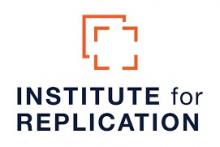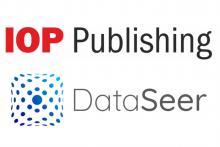'First of its kind' initiative to explore reproducibility and replication

Nature Human Behaviour (NHB), published by Springer Nature, and the Institute for Replication have launched a large-scale initiative to reproduce and replicate research published in the highly selective multi-disciplinary journal. In a first of its kind for a highly selective multidisciplinary journal, the initiative aims to explore how to make reproduction and replication commonplace in the social sciences, and drive forward sustainable open research practices for such titles.
Up to €26 billion in Europe, and up to $28bn in the US is wasted due to unnecessary duplication of research because of a lack of awareness of existing work and negative results. Having access to all elements of research, code, data, methods etc, and being able to replicate and reproduce studies is critical, not only in supporting efficiency and building on scientific advancement, but also to build trust in science.
Speaking of the initiative Stavroula Kousta, Editor-in Chief of Nature Human Behaviour, said: “Although the value of reproduction and replication is much better recognised now than at the beginning of the millennium, because studies published in highly selective multidisciplinary journals tend to be larger in scale and harder to replicate, a collaboration of this kind and scale in this context is unprecedented. We hope that this initiative and its outputs will contribute to strengthening the credibility of research, promote the value and visibility of reproduction and replication efforts, and lead to increased transparency and rigour.”
Springer Nature says it is committed to enabling a more open ecosystem for all that accelerates solutions to the world's most urgent challenges. The publisher says has been at the forefront of supporting open science practices: via its promotion of early sharing of papers as preprints (InReview); its leading protocols platform and acquisition of protocols.io; its forward looking policies around open access, open data and code which have informed industry standards; and via partnerships to better understand researcher needs within this space. This partnership is the latest example of that forward looking commitment.
The study will include research published in NHB from 2023 onwards. The journal will not have oversight of the papers that are selected for the project, but it will work with the Institute for Replication and all authors to facilitate the process of data and code sharing. Results of the initiative will be available in 2025.









